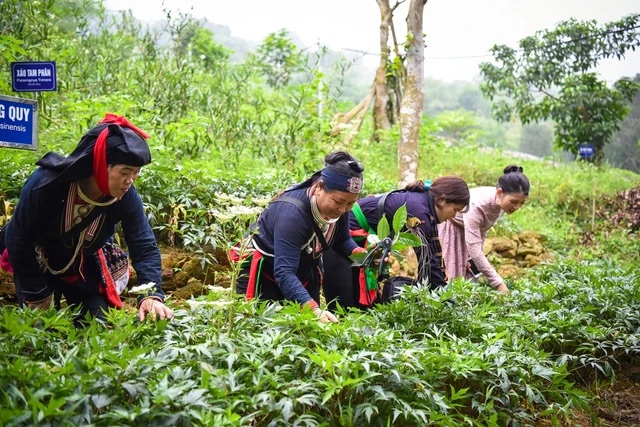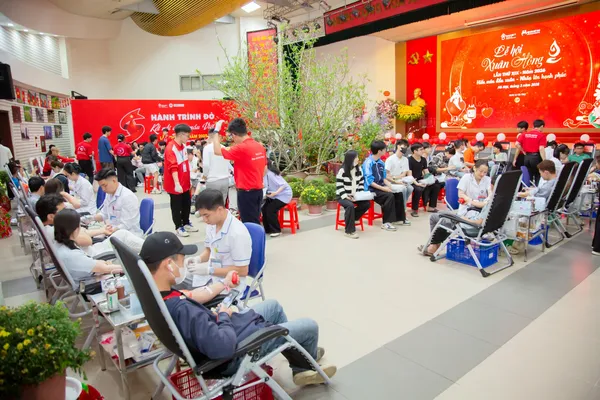 Environment
Environment


|
| Deputy Prime Minister Trần Hồng Hà speaks at the meeting on Tuesday. — VNA/VNS Photo |
HÀ NỘI — Deputy Prime Minister Trần Hồng Hà on Tuesday underscored the need for community-based approaches to forest protection, stressing that long-term conservation depends on stable livelihoods for people living in woodland areas.
Chairing a high-level meeting on the draft amendment to Decree No. 156/2018/ND-CP on forestry law implementation, the Deputy PM stressed that expanding the cultivation of medicinal herbs under forest canopies must go hand in hand with stabilising local livelihoods and protecting forest ecosystems.
"This policy must ensure people can stay in the forest, live from it and protect it. Livelihood comes first," Hà said, highlighting the crucial link between socio-economic development and forest conservation.
The draft decree introduces legal definitions of 'medicinal plants' and 'harvesting of medicinal plants,' and sets out procedural steps for the approval or adjustment of forest-based herb cultivation plans. It also proposes mechanisms for leasing forest environments for such purposes.
The draft decree also proposes detailed regulations on the development and harvesting of medicinal herbs in forests, aiming to address ongoing challenges and prevent unregulated exploitation that threatens forest quality and biodiversity.
According to the Ministry of Agriculture and Environment, Việt Nam is home to a wide range of medicinal plant species, many of which are highly valued for their health benefits and economic potential, such as Vietnamese ginseng.
Several provinces, including Nghệ An, Quảng Nam, and Kon Tum, have promoted the agroforestry model of integrating medicinal plant cultivation under forest canopies, contributing to higher incomes in ethnic communities.
Local leaders voiced support for the initiative, noting that it provides a much-needed legal framework for the development of herbal farming regions, the building of geographical indication systems, and the branding of locally grown medicinal products.
The Vice Chairman of Lai Châu Province, Hà Trọng Hải, called for exemptions on leasing fees in disadvantaged areas to encourage local participation and job creation among ethnic groups.
The Vice Chairman of Quảng Nam Province, Phan Thái Bình, urged the government to broaden the list of permissible forest types for herb farming, including special-use forests, protective forests, national parks, nature reserves, species-habitat conservation areas and upstream protective forests with steep slopes.
The amendment is also designed to support the national socio-economic development programme for ethnic and mountainous areas (2021–2030), Việt Nam’s ginseng development strategy to 2030, with a vision to 2045, and a long-term plan for the multi-functional use of forest ecosystems.
Deputy Finance Minister Bùi Văn Khắng said medicinal herb cultivation should be framed as a tool for forest development. He called for clearly defined technical and economic criteria to attract investment into the herbal sector, particularly for research centres, processing plants and logistics infrastructure.
Deputy PM Hà instructed the Ministry of Agriculture and Environment to fully incorporate practical feedback from provinces to refine the decree, making it a robust legal foundation for the sustainable and multi-purpose use of forest lands and resources.
He emphasised strict regulations for activities involving special-use and protective forests, suggesting different policies be applied based on regional socio-economic conditions and infrastructure capacity.
For buffer zones, detailed regulations should define permitted plant species and farming methods, while core conservation zones must have controlled harvesting quotas, especially for naturally growing herbs.
The Deputy PM urged the inclusion of incentives for enterprises partnering with communities to develop large-scale herbal cultivation zones.
This includes preferential treatment for machinery, technology, credit, land use and facilities such as warehouses and processing plants. The goal is to create internationally standardised, export-ready herbal value chains that carry local and national branding.
To streamline implementation, the decree should clearly define administrative procedures and responsibilities under the decentralised governance framework, avoiding the need for additional legal documents.
Digital technology should be used to build databases for post-audit management, replacing pre-audit systems.
In addition, Hà requested the Ministry of Agriculture and Environment work with the ministries of finance, health, and the State Bank, to develop an insurance mechanism for medicinal plant cultivation, particularly in remote areas.
He also proposed allocating tasks to relevant forest protection funds to support herb growers and developing tools such as geographical indications, herb zone maps and e-commerce platforms. — VNS




